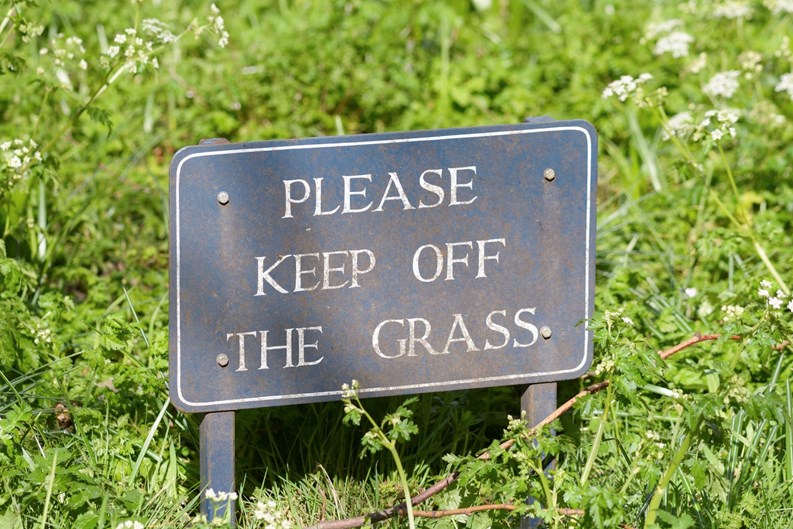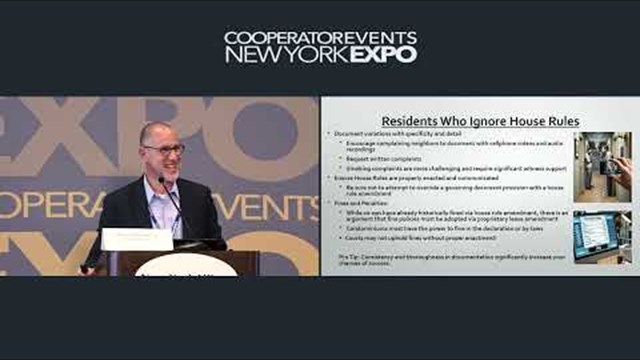Not every co-op or condo in New York City has grassy areas on the property. But for those that do, the question of what is allowed on them often comes up. Sure we’ve all passed by buildings surrounded by lush grass lawns protected by a sign reading “keep off the grass.” Yet the issue isn’t quite as clear cut as those signs would have us believe. As it turns out, there is quite a bit of thought and consideration that goes into putting that sign up.
“So long as the bylaws don’t prohibit it, an association can ban people from going on the grass, among other things,” says real estate attorney Adam Leitman Bailey, founding partner of the New York City-based law firm Adam Leitman Bailey, P.C. “The board of directors has jurisdiction over running the common elements, so they can do what’s in the best interest of the shareholders. They can regulate [playing on the grass] and ban it if necessary.”
Changing the Rules Is Complicated
As with most things in a co-op or a condo, the board’s jurisdiction is limited by their bylaws and governing documents. While these documents often give the board a lot of latitude with what they can do concerning the common areas, controlling whether people can use the grass for activities can be a bit of a hassle.
“If the co-op previously allowed people to go on the grass, it makes it harder to ban people from going on it. Although, if the corporate documents give the board the jurisdiction to oversee those areas they can still take it away,” says Bailey.
While the governing documents might give the board the right to take such action, banning something that was previously allowed isn’t an easy task. “It depends on the corporate documents and usually the board has a lot of latitude in what they can do. However if it’s in the offering plan—it says the grass can be used for these activities—you’d need an amendment to the bylaws to ban those activities, which usually requires 66.6 percent [approval] of the shareholders,” says Bailey.
The reverse is also true: if a building previously banned people from using the grass, overturning a ban is not a simple thing. More often than not, it might require electing board members who are amenable to the idea.
“One of the ways to have the ability to go on the grass and play sports, or do whatever you want,” Bailey says, “is to call a special meeting on that question or elect shareholders that are going to go ahead and support the use of the grass in that way.”
If you do change the rules though and allow people to use the grass for various activities, you need to contact your insurance provider and let them know because “once you allow shareholders to use it, you may be responsible if someone gets injured,” says Bailey.
There's Room for Compromise
However, it doesn’t have to be an either/or proposition. If there are some shareholders who are afraid activity on the grass will ruin it, and others who still want to allow its use, there are things than can be done to accommodate both sides.
“One back and forth I have right now is at a very large cooperative in Riverdale,” Bailey says. “The kids want to go on the grass to play Frisbee, kick soccer balls, play sports. Some of the residents are claiming that allowing them to do this is destroying the look of the grass, which costs money to fix. Right now there’s a battle between the two sides, but at the moment they’ve tentatively agreed to allow certain hours for certain items and sports to be played on the grass—no cleats, no spikes, certain kinds of shoes—and to make sure there’s no damage to the horticulture.”
No matter what you decide to do, enforcement of board rules should always be uniform. If you ban people from using the grass, then everyone must be banned. You can’t allow any exceptions, otherwise you’ll run into trouble.
"Cooperatives need to treat all their members equally," says Bailey. "A building cannot keep a cooperative's special tax status and abatement a when you create two classes of shares or two sets of rules. In addition, selective enforcement of a rule many times leads to discrimination claims when a minority or special class is involved."
John Zurz is a staff writer for The Cooperator.










Leave a Comment